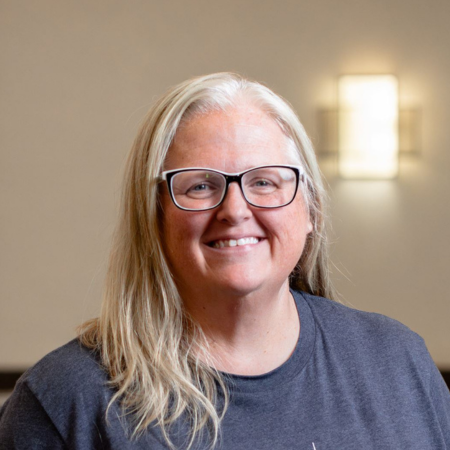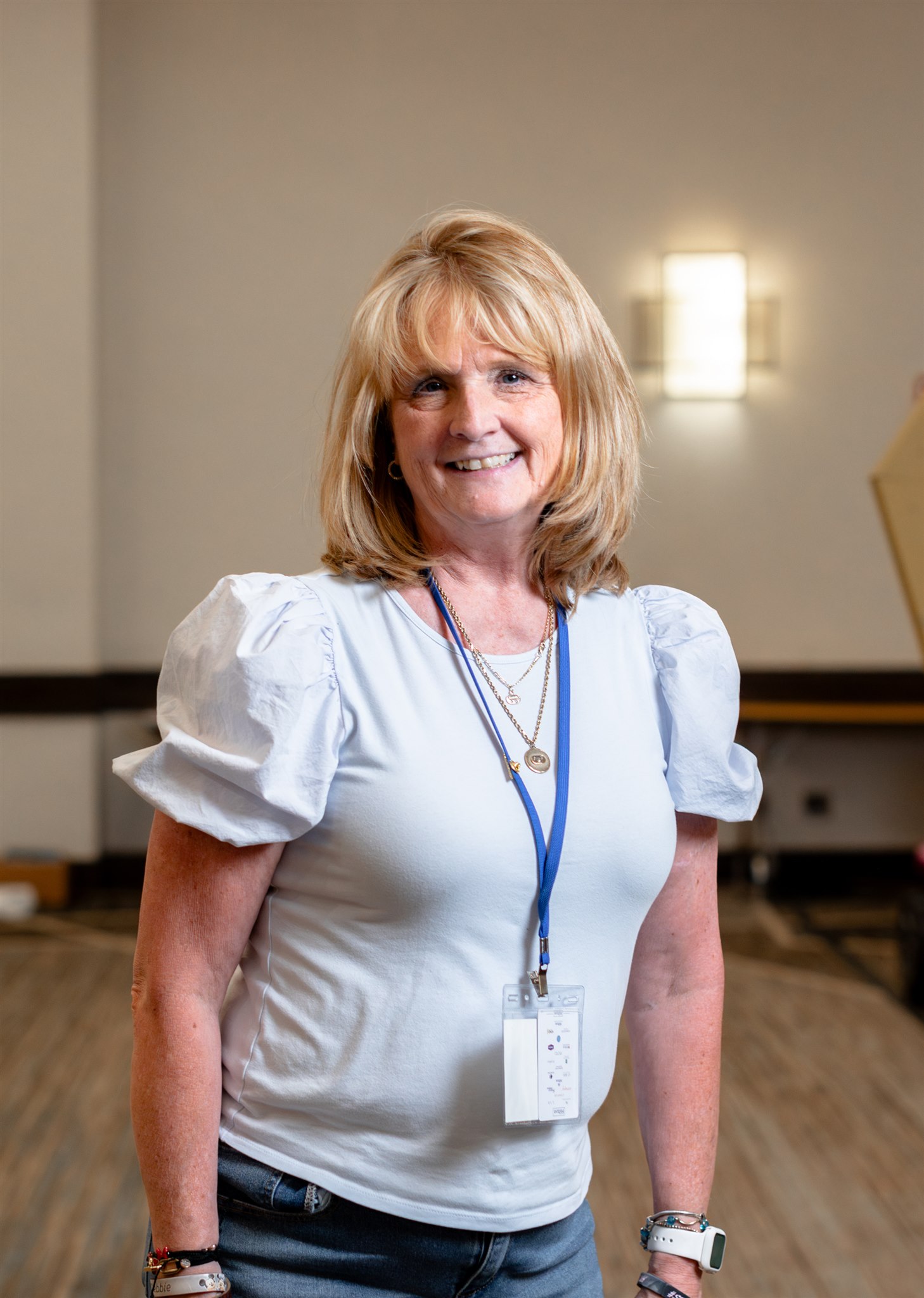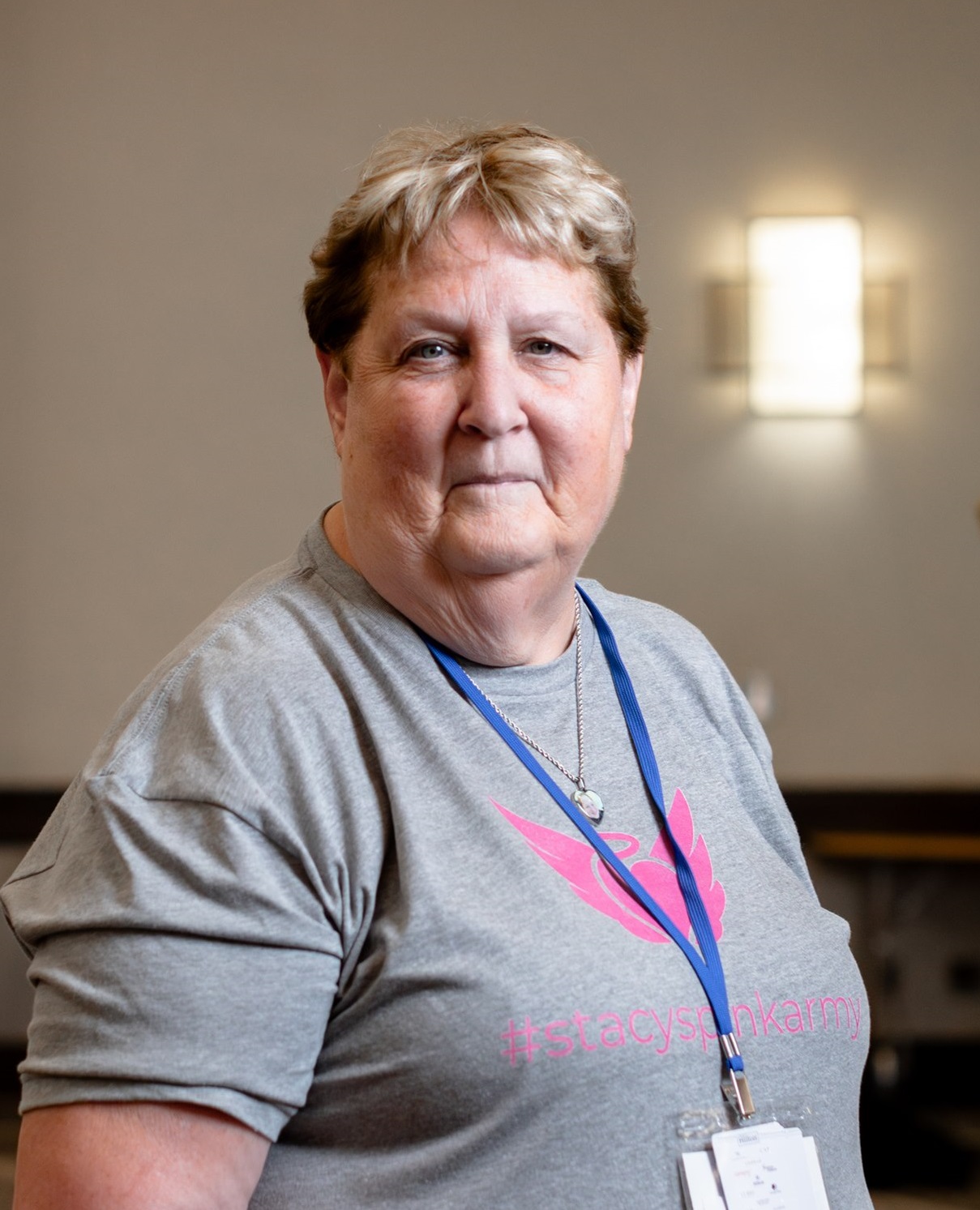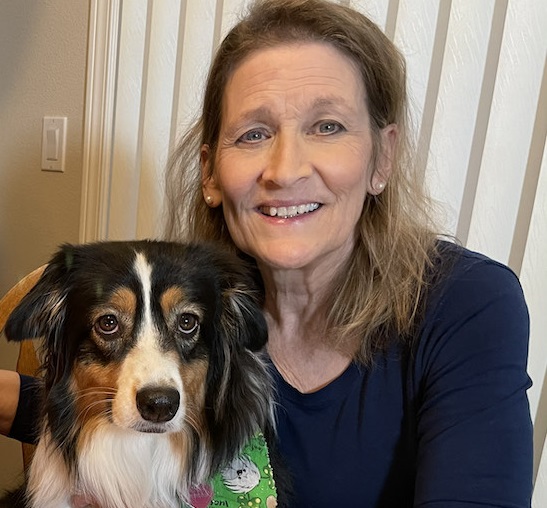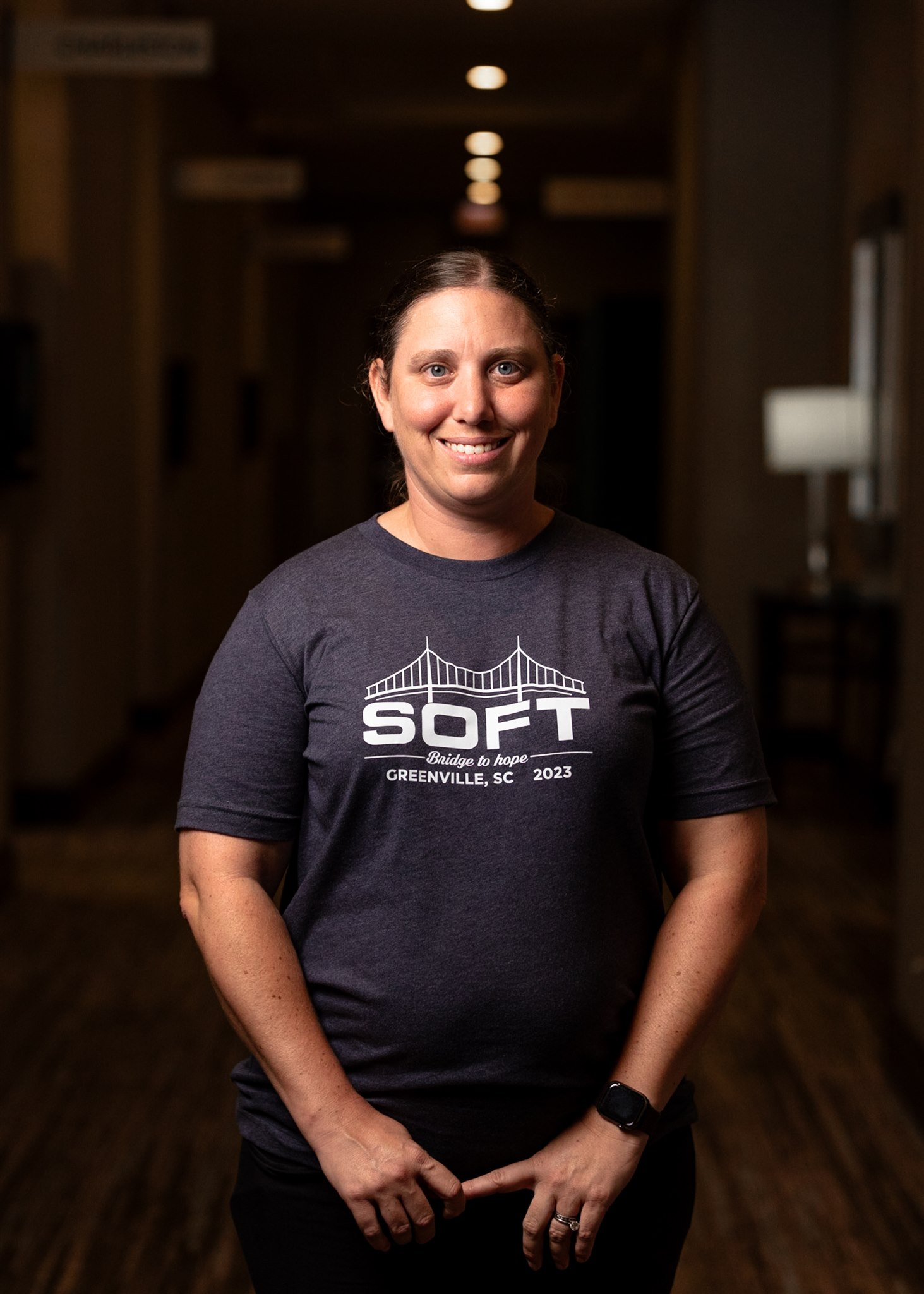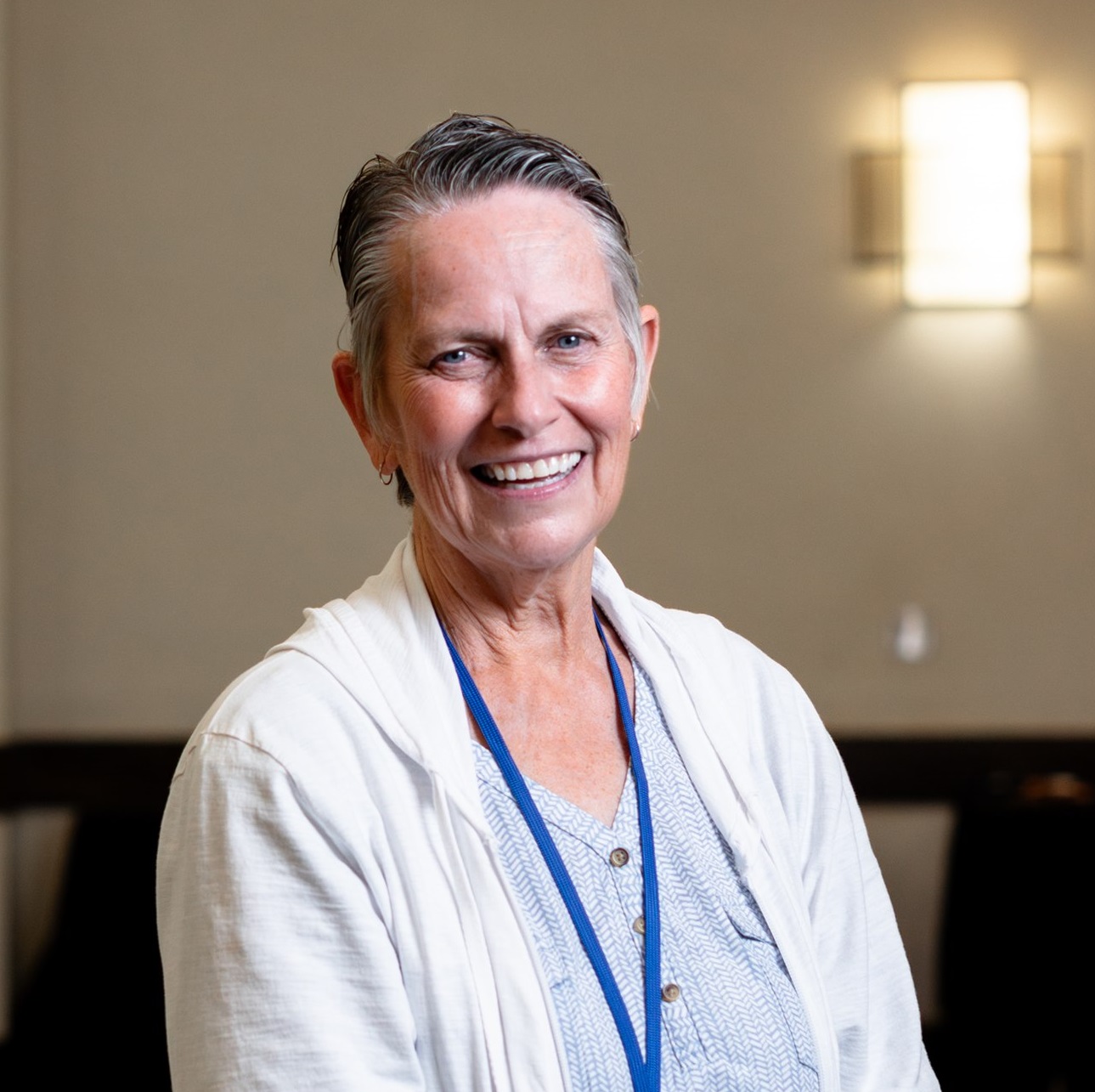SOFT’s Professional Literature, Growth Charts & Surgery Information
Growth Charts, Surgeries & Literature
Children with trisomy 18 or 13 do not follow the standard infant and child growth patterns. These children are smaller at birth and grow more slowly than other children, especially those with trisomy 18. SOFT provides the only known Growth Curves for trisomy 18 and 13 and we suggest they be downloaded for use with affected children.
Reports of over 3,000 parent-reported surgeries or procedures have been collected into a Surgery Registry and compiled into surgery tables made available on this website.
SOFT’s surgery registry is helpful for families seeking another family whose child experienced the same surgery or for finding a trisomy-friendly surgeon. A number of researchers have utilized the surgery registry’s data for SOFT-approved studies.
Slowly but surely, during three decades of existence, SOFT has compiled a substantial library of professional literature about trisomy 18 and 13 which we are delighted to share with you below!
Also, see SOFT’s video channel for medical videos. It’s found under the “Resources” menu tab.
Professional Literature: Click a left column subject area, below, to bring up a list of related, peer-reviewed articles, which are provided for Educational Purposes.
- Cardiac Surgery: Ethics & Management
- Ethics & Commentaries
- Care Management & Social Issues
- General Topics
- Studies and Research
Professional Literature – Cardiac Surgery: Ethics and Management
St. Louis, et al, 2023: The American Association for Thoracic Surgery (AATS) 2023 Expert Consensus Document: Recommendation for the care of children with trisomy 13 or trisomy 18 and a congenital heart defect (The American Association for Thoracic Surgery 2023;8:e012349. DOI: 10.1016/j.jtcvs.2023.11.054.
Weaver, MS, et al, 2018 Eliciting Narratives to Inform Care for Infants with Trisomy 18
Pediatrics, October 2018, Volume 142/Issue 4, Family Partnerships
Domingo, L, Carey, JC, et al, 2018 Mortality and Resource Use Following Cardiac Interventions in Children with Trisomy 13 and Trisomy 18 and Congenital Heart Disease
Pediatr Cardiol (2018). https://doi.org/10.1007/s00246-018-2001-x
Kosiv, KA, et al, 2017 Congenital Heart Surgery on in-Hospital Mortality in Trisomy 13 and 18
Pediatrics, November 2017, Volume 140/Issue 5
Peterson, JK, et al, 2017 Long-term Outcomes of Children with Trisomy 13 and 18 After Congenital Heart Disease Interventions. Ann Thorac Surg. 2017 Apr 26. pii: S0003-4975(17)30375-2. doi: 10.1016/j.athoracsur.2017.02.068. [Epub ahead of print]
Costello, JP, et al, 2015, A Contemporary, Single-Institutional Experience of Surgical Versus Expectant Management of Congenital Heart Disease in Trisomy 13 and 18 Patients Pediatr Cardiol. 2015 Jan 23. [Epub ahead of print]
Lorenz, et al, 2013 Evolving Medical and Surgical Management of Infants with Trisomy 18
Carey JC 2011. Analysis of Kaneko Y et al 2009 Cardiac Surgery in Patients with Trisomy 18
Pediatr Cardiol 30:729-734. SOFT Times Nov/Dec/Jan 2010-11
Yates AR et al 2011. Pediatric sub-specialist controversies in the treatment of congenital heart disease in trisomy 13 or 18. J Genet Couns. 2011 Oct;20(5):495-509. Abstract. A multi-disciplinary team may experience controversy in formulating a care plan that includes cardiac intervention.
Janvier A et al 2011 Pediatrics 2011;127:754–759 Ethical Rounds: An infant with trisomy 18 and a ventricular septal defect Pediatrics, Volume 127, Number 4, April 2011. The case of an infant with trisomy 18 was presented to two neonatologists and an unrelated parent. They do not agree about the right thing to do.
Carey JC 2011. review of Janvier A et al 2011 Ethical Rounds: An infant with trisomy 18 and a ventricular septal defect. Pediatrics 127:754-759. SOFT Times May/June/July 2011
Maeda et al. 2011. Am J Med Genet Part A The impact of cardiac surgery in patients with trisomy 18 and trisomy 13 in Japan. This article is a review of 134 children with trisomy 18, and 27 children with trisomy 13 from the Japanese Society of Pediatric Cardiology and Cardiac Surgery. Approximately 25% of the children had cardiac surgery. Survival was related to birth weight and gestational age.
Muneuchi J. 2011. Cardiol Young Outcomes of cardiac surgery in trisomy 18 patients. The authors described 34 Japanese children with trisomy 18. Some of the children were treated conservatively while others had cardiac surgery. The one year survival rates for the two groups were 9% and 25%, respectively. The authors conclude that some children can be helped with cardiac surgery.
Kobayashi et al. 2010. Gen Thorac Cardiovasc Surg J, Radical surgery for a ventricular septal defect associated with trisomy. Five female infants with trisomy 18 from Japan underwent full cardiac repair. All survived surgery and lived beyond 30 days with an average survival after surgery of 815 days. The authors conclude that cardiac surgery can be beneficial for some children with trisomy 18.
Kaneko. 2009. Pediatr Cardiol Cardiac surgery in patients with trisomy 18. Describes the outcome of 17 babies with trisomy 18 who received cardiac surgery.
Kaneko et al. 2008. Pediatrics Intensive cardiac management in patients with trisomy 13 or trisomy 18 Am J Med Genet Part A. This article reviewed the outcome of 31 consecutive Japanese infants with trisomy 13 or 18 born between 2000 and 2005. Some children were offered both medications and surgery for cardiac anomalies resulting in a significant increase in survival.
Carey JC 2005. Health Supervision and Anticipatory Guidance for Infants and Children with Trisomy 18 and 13 updated from 1993 Trisomy in Review, Trisomy 18, 13 and Related Disorders, Research Newsletter (SOFT)
Graham et al. 2004. Am J Cardiol Effectiveness of cardiac surgery in trisomies 13 and 18 (from the Pediatric Cardiac Care Consortium). A report of 35 cardiac surgeries performed at one of 48 reporting centers in the US, Canada and Europe.
Bhatt, et al, 2004. Management of infants with large, unrepaired ventricular septal defects (VSDs) J Thorac Cardiovasc Surg. 2004 May;127(5):1466-73. Management of infants with large, unrepaired ventricular septal defects and respiratory infection requiring mechanical ventilation
Graham, et al 2004 Pediatric Cardiac Care Consortium. Effectiveness of cardiac surgery in trisomies 13 and 18 (from the Pediatric Cardiac Care Consortium). Am J Cardiol. 2004 Mar 15;93(6):801-3.
Carey JC 1993. Trisomy in Review, Trisomy 18, 13, and Related Disorders, Research Newsletter Review of articles published 1988-1991: – Phenotype and natural history of partial trisomy 18 – Congenital heart defects – Survival studies – Oncology – Prenatal diagnosis
Professional Literature: Ethics and Commentaries
Haug, S, et al, 2017 Using Patient-Centered Care After a Prenatal Diagnosis of Trisomy 18 or Trisomy 13: A Review.
JAMA Pediatr. 2017 Feb 13. doi: 10.1001/jamapediatrics.2016.4798. [Epub ahead of print]
, et al, 2016. Does medical intervention affect outcome in infants with trisomy 18 or trisomy 13? Am J Med Genet Part A 9999A:847–849.
Bruns, D, et al, 2016 Twenty-Two Survivors over the Age of 1 Year with Full Trisomy 18: Presenting and Current Medical Conditions American Journal of Medical Genetics, Part C, Seminars in Medical Genetics, September 15, 2016 (whole issue)
Donovan, Jennifer, et al, 2016 Medical Interventions and Survival by Gender of Children With Trisomy 18 American Journal of Medical Genetics Part C (Seminars in Medical Genetics) 172C:272–278 (2016)
Pearson, Alison, 2015 Never Say Never about our child – an article in the BMJ (formerly the British Medical Journal). In the latest of a monthly series in which patients and care-givers set the learning outcomes for readers, Alison Pearson asks healthcare staff to reconsider the concept of offering “false hope.”
Costello, JP, et al, 2015 A Contemporary, Single-Institutional Experience of Surgical Versus Expectant Management of Congenital Heart Disease in Trisomy 13 and 18 Patients Pediatr Cardiol. 2015 Jan 23. [Epub ahead of print]
Koogler et al 2013 Hastings Center Report Lethal language, lethal decisions. Although many of the congenital syndromes that used to be lethal no longer are, they are still routinely referred to as “lethal anomalies.”
Berg et al. 2013 Am J Hosp Palliat Care, 2013, Jun;30(4):406-8. doi: 10.1177/1049909112465790. Why were they in such a hurry to see her die? Parents of a baby with trisomy 18 share the experience of their baby’s birth and short life including the lack of understanding of the staff. Both parents of the baby are physicians.
Guon, et al, 2013 Our children are not a diagnosis: the experience of parents who continue their pregnancy after a prenatal diagnosis of trisomy 13 or 18. AJMG Vol 164, Issue 2, Feb 2014; 308-318
Boss et al. 2013 Pediatrics: Trisomy 18 and complex congenital heart disease: seeking the threshold benefit A prenatal diagnosis of ductal-dependent, complex congenital heart disease was made in a fetus with trisomy 18. A prenatal ethics consultation was requested. Their journey to obtain approval before birth including multiple meetings with staff.
Bruns, D. A. 2013. Erring on the side of life: Children with rare trisomy conditions, medical interventions and quality of life. Journal of Genetic Disorders and Genetic Reports. This article presents a call to examine the individual child rather than decision-making by diagnosis.
Wu, et al. 2013 American Journal of Medical Genetics Part A Volume 161, Issue 10, Article first published online: 17 SEP 2013 Survival Rates, Times Noted for Live Births With Trisomy 13 and 18 Wu et al suggest that detailed and accurate information about the survival of children with trisomies 13 and 18 should be provided to parents, genetic counselors, and health professionals caring for affected families.
Loane M et al 2013. Twenty-year trends in the prevalence of Down syndrome and other trisomies in Europe: impact of maternal age and prenatal screening. Eur J Hum Genet. 2013 Jan;21(1):27-33 (abstract)
Heuser et al. 2012 J Med Ethics Survey of physicians’ approach to severe fetal anomalies.
732 members of the American Society of Maternal Fetal Medicine were surveyed regarding the manner in which women receiving a trisomy diagnosis are counselled, regarding termination and delivery.
Carey JC 2012 Perspectives on the care and management of infants with trisomy 18 and trisomy 13: striving for balance (abstract) Curr Opin Pediatr 2012, 24:000 – 000
Janvier A et al 2012. The Experience of Families With Children With Trisomy 13 and 18 in Social Networks Am Academy of Pediatrics, doi:10.1542/peds.2012-0151
Tsukada K et al 2012. Better Prognosis in Newborns with Trisomy 13 Who Received Intensive Treatments: A Retrospective Study of 16 Patients Cell Biochem Biophys. 2012 July; 63(3): 191–198.
Merritt TA et al 2012. Trisomy 18 and Trisomy 13: Treatment and Management Decisions (abstract) NeoReviews Vol. 13 No. 1 January 1, 2012 pp. e40 -e48 (doi: 10.1542/neo.13-1-e40) Am Academy of Pediatrics
Derrington SF, Dworetz AR 2012. Confronting ambiguity: identifying options for infants with trisomy 18.J Clin Ethics. 2011 Winter;22(4):338-44; author reply 358-62. Abstract.
Janvier A et al, 2011 Ethical Rounds: An infant with trisomy 18 and a ventricular septal defect Pediatrics, Volume 127, Number 4, April 2011
Carey JC 2011. Review of Janvier A et al 2011 Ethical Rounds: An infant with trisomy 18 and a ventricular septal defect. Pediatrics 127:754-759. SOFT Times May/June/July 2011
Felton LJ 2011. Trisomy 13 and 18 and Quality of Life: Treading ‘‘Softly’’ Am J Med Genet Part A 155:1527–1528.
Thiele et al, 2011. BMJ Destined to die An Australian mother’s experience: At 18 weeks’ gestation Pauline Thiele’s baby was diagnosed with trisomy 18, a usually lethal syndrome.
Everett BJ et al. 2011. J Clin Ethics Ethical care for infants with conditions not curable with intensive care.
Offering intensive care to neonates who have conditions that carry extremely poor prognoses is a source of great contention amongst neonatologists.
Mercurio 2011 J Perinatol The role of pediatrics ethics committee in the newborn intensive care unit
Two cases are presented as illustrations of pediatric ethics committee function.
Yates AR et al 2011. Pediatric sub-specialist controversies in the treatment of congenital heart disease in trisomy 13 or 18. J Genet Couns. 2011 Oct;20(5):495-509. Abstract.
Morrison et al. 2010. Circulation 2010 American Heart Association Guidelines for Cardiopulmonary Resuscitation and Emergency Cardiovascular Care Science Part 3: Ethics Healthcare professionals should consider ethical, legal, and cultural factors when caring for those in need of CPR.
Wilkinson 2010 J Med Ethics Antenatal diagnosis of trisomy 18, harm and parental choice. This commentary assesses the possible harms of continued life, to a fetus with trisomy 18.
McGraw et al. 2008. Pediatrics Attitudes of neonatologists toward delivery room management of confirmed trisomy 18: potential factors influencing a changing dynamic. Until recently, there was universal consensus that trisomy 18 was a lethal anomaly for which resuscitation in the delivery room was not indicated. There are two published responses to this article (Dr. S Showalter and Dr. John Carey):
1. https://pediatrics.aappublications.org/content/123/3/e548.long
2. https://pediatrics.aappublications.org/content/123/3/e547.long
Siegel, 2006 Mt Sinai J Med When staff and parents disagree: decision making for a baby with trisomy 13 Parents often make medical decisions for their children. As pediatricians, we must be sure that the decisions are medically informed.
Guinan 2005 Virtual Mentor. Patau syndrome and perinatal decision making. Clinical Cases: The obstetrician offered the family 2 options: early induction of labor or term delivery of the child with palliative care after birth.
Professional Literature: Care Management and Social Issues
Ioannis A. Ziogas, et al: Management and Outcomes of Hepatoblastoma in Patients With Trisomy 18: A Systematic Review and Pooled Analysis of 70 Patients Journal of Pediatric Surgery 2024
Sue L. Jaspersen, et al: 2022 Seizures in trisomy 18: Prevalence, description, and treatment AJMG December 2022
Cortezzo, D: J Pediatr 2022;-:1-8 Perinatal Outcomes of Fetuses and Infants with Trisomy 18 or Trisomy 13
Lebedoff, Carey: 2021 Parent-Reported histories of adults with trisomy 13 syndrome. AJMG March 2021. https://doi.org/10.1002/ajmg.a.62165
Weaver MS, et al: 2021 Interdisciplinary care of children with trisomy 13 and 18. Am J Med Genet A. 2021 Mar;185(3):966-977. doi: 10.1002/ajmg.a.62051. Epub 2020 Dec 31. PMID: 33381915 (abstract)
Pyle, A.K., et al, 2018 Management Options and Parental Voice in the Treatment of trisomy 13 and 18 Journal of Perinatology A summary of current data and an ethical analysis of whether medical and surgical interventions should be offered to parents of newborns with trisomy 13 or 18.
Stanford Medicine News Center, 2017 Infants with the genetic disorders trisomy 13 or 18 are more likely to survive if they undergo heart surgery, a study from researchers at Stanford and the University of Arkansas has found.
, et al, 2016. Does medical intervention affect outcome in infants with trisomy 18 or trisomy 13? Am J Med Genet Part A 9999A:847–849.
Satge D, et al, 2016 A Tumor Profile in Edwards Syndrome (trisomy 18) Am J Med Genet Part C Semin Med Genet 172C:296–306.
Satgé D, et al, 2017 A Tumor Profile in Patau Syndrome (trisomy 13) Am J Med Genet A. 2017 Aug; 173(8):2088-2096. doi: 10.1002/ajmg.a.38294. Epub 2017 May 25
Acharya, K et al 2017 Major anomalies and birth-weight influence NICU interventions and mortality in infants with trisomy 13 or 18. J Perinatol. 2017 Jan 12. doi: 10.1038/jp.2016.245. [Epub ahead of print]
Carey JC, et al 2016 Commentary on Perspectives on the Care and Advances in the Management of Children with Trisomy 13 and 18 American Journal of Medical Genetics, Part C, Seminars in Medical Genetics, September 15, 2016 (whole issue)
Bruns, DA, 2016 The TRIS Project: Tracking Rare Incidence Symdromes. An on-going project managed by D.A. Bruns, PhD, at Southern Illinois University. A number of care, family experience and support articles are listed on this link. A link to updated information is here.
Fukasawa, T. et al. 2015 Apneas observed in trisomy 18 neonates should be differentiated from epiliptic apneas. Fukasawa T, et al. Am J Med Genet A. 2015.
Tsukada, et al 2015 Better Prognosis in Newborns with Trisomy 13 Who Received Intensive Treatments: A Retrospective Study of 16 Patients . Cell Biochem Biophys. 2012 Jul; 63(3): 191–198. Published online 2012 Apr 10. doi: 10.1007/s12013-012-9355-0
Wilkinson, DJ et al, 2014 Perinatal management of trisomy 18: a survey of obstetricians in Australia, New Zealand and the UK, Wiley OnLine Library, Volume 34, Issue 1, pages 42–49, January 2014
Kosho, et al 2013 Natural History and Parental Experience of Children with Trisomy 18 Based on a Questionnaire Given to a Japanese Trisomy 18 Parental Support Group, Am Jrnl Medical Genetics, March 2013
Lorenz, et al, 2013 Evolving Medical and Surgical Management of Infants with Trisomy 18
Wu, et al 2013 Survival Rates, Times Noted for Live Births With Trisomy 13 and 18 It is suggested that detailed and accurate information about the survival of children with trisomies 13 and 18 should be provided to parents, genetic counselors, and health professionals caring for affected families.
Kosho, T et al 2013 Natural history and parental experience of children with trisomy 18 … Natural history and parental experience of children with trisomy 18 based on a questionnaire given to a Japanese Parental Support Group.
Braddock BA et al 2013 informa healthcare Reported communication ability of persons with trisomy 18 and trisomy 13 Posted online on November 1, 2013. (doi:10.3109/17518423.2013.847980)
Carey JC 2012. Perspectives on the care and management of infants with trisomy 18 and trisomy 13: striving for balance (abstract) Curr Opin Pediatr 2012, 24:000 – 000
Felton LJ 2011. Trisomy 13 and 18 and Quality of Life: Treading ‘‘Softly’’ Am J Med Genet Part A 155:1527–1528.
Merritt TA et al 2012. Trisomy 18 and Trisomy 13: Treatment and Management Decisions (abstract) NeoReviews Vol. 13 No. 1 January 1, 2012 pp. e40 -e48 (doi: 10.1542/neo.13-1-e40) Am Academy of Pediatrics
Elias ER, Murphy NA and Council on Children with Disabilities. 2012 Home Care of Children and Youth With Complex Health Care Needs and Technology Dependencies. Clinical Report AAP. Pediatrics. 2012;129(5): 996-1005
Janvier A et al 2012.The Experience of Families With Children With Trisomy 13 and 18 in Social Networks Am Academy of Pediatrics, doi:10.1542/peds.2012-0151
Bruns D et al 2012. Examining In-Home Care Needs and Work Responsibilities for Parents with Children with a Rare Trisomy Condition int. j. of developmental disabilities, Vol. 58 No. 3, November, 2012, 159–175
Tsukada K et al 2012. Better Prognosis in Newborns with Trisomy 13 Who Received Intensive Treatments: A Retrospective Study of 16 Patients Cell Biochem Biophys. 2012 July; 63(3): 191–198.
Nelson KE et al 2012. Inpatient hospital care of children with trisomy 13 and trisomy 18 in the United States. Pediatrics 2012, 129:869–876.
Derrington SF, Dworetz AR 2012. Confronting ambiguity: identifying options for infants with trisomy 18.J Clin Ethics. 2011 Winter;22(4):338-44; author reply 358-62. abstract
Bruns D, Foerster K 2011. ‘We’ve been through it all together’: Support for parents with children with rare trisomy conditions. Journal of Intellectual Disability Research, 55(4), 361–369 abstract
Bruns DA 2010. Neonatal experiences of newborns with full trisomy 18. (abstract) Adv Neonatal Care 2010, 10:25–31.
Kosho T. 2008. Care of children with trisomy 18 in Japan. Am J Med Genet Part A 146A:1369–1371.
Romesberg TL 2008 Building a Case for Neonatal Palliative Care Neonatal Network: The Journal of Neonatal Nursing
Kaneko Y et al 2008 Intensive cardiac management in patients with trisomy 13 or trisomy 18 Am J Med Genet Part A.
McGraw et al 2007. Attitudes of Neonatologists Toward Delivery Room Management of Confirmed Trisomy 18: Potential Factors Influencing a Changing Dynamic . Pediatrics Volume 121, Number 6, June 2008.
Kosho T, et al 2006. Neonatal management of trisomy 18: Clinical details of 24 patients receiving intensive treatment Am J Med Genet Part A 140A:937-944.
Niedrist D, et al 2006. Survival with trisomy 18 – data from Switzerland Am J Med Genet Part A 140A:952–959.
Carey JC 2005. Health Supervision and Anticipatory Guidance for Infants and Children with Trisomy 18 and 13 updated from 1993 Trisomy in Review, Trisomy 18, 13 and Related Disorders, Research Newsletter (SOFT)
Hillelstein BP et al 2004 Pediatric Palliative Care https://www.nejm.org/doi/full/10.1056/nejmra030334
Baty, BJ, et al, 1994. Natural History of Trisomy 18 and Trisomy 13: I. Growth, Physical Assessment, Medical Histories, Survival, and Recurrence Risk Includes Growth & weight charts.
Baty, BJ, et al, 1994. Natural History of Trisomy 18 and Trisomy 13: II. Psychomotor Development
Professional Literature: General Topics
Ryann Bierer, et al., 2024 Parent Narratives Provide Perspectives on the Experience of Care in Trisomy 18 American Journal of Medical Genetics Part C: Seminars in Medical Genetics, August 2024
Farmakis SG, et al., 2019 Solid tumor screening recommendations in trisomy 18 Am J Med Genet A. 2019.
Winn, P, et al., 2018 Prenatal counseling and parental decision-making following a fetal diagnosis of trisomy 13 or 18 Journal of Perinatology. 38. 10.1038/s41372-018-0107-x.
Shibuva, S, et al, 2018 (Abstract) Safety and efficacy of noncardiac surgical procedures in the management of patients with trisomy 13: A single institution-based detailed clinical observation. Am J Med Genet A. 2018 May;176(5):1137-1144. doi: 10.1002/ajmg.a.38678.
Cavadino, A., et al, 2017 Revised estimates of the risk of fetal loss following a prenatal diagnosis of trisomy 13 or trisomy 18
Kalish, J, et al, 2017. Surveillance Recommendations for Children with Overgrowth Syndromes and Predisposition to Wilms Tumors and Hepatoblastoma. CCR Pediatric Oncology Series, July 2017
, et al, 2016. Does medical intervention affect outcome in infants with trisomy 18 or trisomy 13? Am J Med Genet Part A 9999A:847–849.
Satge D, et al, 2016 A Tumor Profile in Trisomy 18 (Edwards Syndrome) Am J Med Genet Part C Semin Med Genet 172C:296–306.
Haug, S, et al, 2017 Using Patient-Centered Care After a Prenatal Diagnosis of Trisomy 18 or Trisomy 13: A Review.
JAMA Pediatr. 2017 Feb 13. doi: 10.1001/jamapediatrics.2016.4798. [Epub ahead of print]
Katie Stoll and Heidi Lindh, 2015: PPV Puffery? Sizing Up NIPT Statistics The authors are genetic counselors and both work with the newly established charitable nonprofit, the Genetic Support Foundation (twitter @GeneticSupport)
Verrotti, A, et al, 2015 Epilepsy and chromosome 18 abnormalities: A review European Journal of Epilepsy November 2015
Acharya, K et al 2017 Major anomalies and birth-weight influence NICU interventions and mortality in infants with trisomy 13 or 18. J Perinatol. 2017 Jan 12. doi: 10.1038/jp.2016.245. [Epub ahead of print]
Bruns, DA, et al 2016 Oral health needs in individuals with trisomy 18 and trisomy 13: Implications for dental professionals Spec Care Dentist 36(1): 18-24, 2016
Carey JC, et al 2016 Commentary on Perspectives on the Care and Advances in the Management of Children with Trisomy 13 and 18 American Journal of Medical Genetics, Part C, Seminars in Medical Genetics, September 15, 2016 (whole issue)
Bruns, DA, 2016 The TRIS Project: Tracking Rare Incidence Symdromes. An on-going project managed by D.A. Bruns, PhD, at Southern Illinois University. A number of care, family experience and support articles are listed on this link. A link to updated information is here.
Bruns, DA, 2015 Developmental Status of 22 Children with Trisomy 18 and Eight Children with Trisomy 13: Implications and Recommendations Am J Med Genet Part A 167A:1807–1815
Fukasawa, T. et al. 2015 Apneas observed in trisomy 18 neonates should be differentiated from epiliptic apneas. Fukasawa T, et al. Am J Med Genet A. 2015.
Meyer, et al 2015 Survival of children with trisomy 13 and trisomy 18: a multistate population-based study. American Journal of Medical Genetics Part A, (Abstract)
Tsukada, et al 2015 Better Prognosis in Newborns with Trisomy 13 Who Received Intensive Treatments: A Retrospective Study of 16 Patients . Cell Biochem Biophys. 2012 Jul; 63(3): 191–198. Published online 2012 Apr 10. doi: 10.1007/s12013-012-9355-0
Cheung, SW, et al, 2015 Accurate Description of DNA-Based Noninvasive Prenatal Screening New England Journal of Medicine 2015; 372:1675-1677April 23, 2015DOI: 10.1056/NEJMc1412222
Costello, JP, et al, 2015, A Contemporary, Single-Institutional Experience of Surgical Versus Expectant Management of Congenital Heart Disease in Trisomy 13 and 18 Patients
Pediatr Cardiol. 2015 Jan 23. [Epub ahead of print]
Bruns, DA, et al 2014 Nine Children Over the Age of One Year with Full Trisomy 13: A Case Series Describing Medical Conditions American Journal of Medical Genetics, Part C, Seminars in Medical Genetics, September 15, 2016 (whole issue)
Chen, H, 2014 Trisomy 18 Clinical Presentation, Medscape Aug 27, 2014
Peron, A, Carey, JC 2014 The Molecular Genetics of Trisomy 18: Phenotype–Genotype Correlations Wiley Online Library DOI: 10.1002/9780470015902.a0025246
Picoraro, JA, et al 2014 Posttraumatic Growth in Parents and Pediatric Patients J Palliat Med 2014 Feb; 17(2):209-18
Bruns, DA, et al 2013 Feeding Changes in Children With Trisomy 18: Longitudinal Data on Primary Feeding Method and Reflux Identification and Treatment Top Clin Nutr Vol. 28, No. 4, pp. 324–334
Janvier, A 2013 Medical Interventions for Children with Trisomy 18 and 13: What is the Value of a Short Disabled Life? ©2013 Foundation Acta Pædiatrica. Published by John Wiley & Sons Ltd 2013 102, pp. 1112–1117
Kosho, et al 2013 Natural History and Parental Experience of Children with Trisomy 18 Based on a Questionnaire Given to a Japanese Trisomy 18 Parental Support Group, Am Jrnl Medical Genetics, March 2013
Lorenz, et al, 2013 Evolving Medical and Surgical Management of Infants with Trisomy 18
Janvier, et al, 2013 “Our children are not a diagnosis”: the family experience of trisomy 13 and 18 Neonatal Research
Nishi, et al 2013 Surgical Intervention for esophageal atresia in patients with trisomy 18 (abstract) The 1-year survival rate was 17%: 27% in those receiving radical surgery
Wu, et al 2013 Survival Rates, Times Noted for Live Births With Trisomy 13 and 18 Wu et al suggest that detailed and accurate information about the survival of children with trisomies 13 and 18 should be provided to parents, genetic counselors, and health professionals caring for affected families. American Journal of Medical Genetics Part AVolume 161, Issue 10, Article first published online: 17 SEP 2013
Loane M et al 2013. Twenty-year trends in the prevalence of Down syndrome and other trisomies in Europe: impact of maternal age and prenatal screening. Eur J Hum Genet. 2013 Jan;21(1):27-33 (abstract)
Kosho, T et al 2013 Natural history and parental experience of children with trisomy 18 … Natural history and parental experience of children with trisomy 18 based on a questionnaire given to a Japanese Parental Support Group.
Palomaki GE, Deciu C, Kloza EM, et al. 2012. DNA Sequencing of Maternal Plasma Reliably Identifies Trisomy 18 and Trisomy 13, as well as Down Syndrome: International Collaborative Study. Genetics in Medicine 14:296-305.
Carey JC 2012. Perspectives on the care and management of infants with trisomy 18 and trisomy 13: striving for balance (abstract) Curr Opin Pediatr 2012, 24:000 – 000
Boghossian, et al, 2012 Anthropometric Charts for Infants with Trisomies 21, 18 or 13 Born between 22 Weeks Gestation and Term: The VON Charts. Am J Med Genet A. 2012 Feb; 0(2): 322-332, Published online 2012 Jan 13. doi: 10.1002/ajmg.a.34423
Elias ER, Murphy NA and Council on Children with Disabilities. 2012 Home Care of Children and Youth With Complex Health Care Needs and Technology Dependencies. Clinical Report AAP. Pediatrics. 2012;129(5): 996-1005
Janvier A et al 2012. The Experience of Families With Children With Trisomy 13 and 18 in Social Networks Am Academy of Pediatrics, doi:10.1542/peds.2012-0151
Cereda A et al 2012. The Trisomy 18 Syndrome Orphanet Journal of Rare Diseases 2012, 7:81
Bruns D et al 2012. Examining In-Home Care Needs and Work Responsibilities for Parents with Children with a Rare Trisomy Condition int. j. of developmental disabilities, Vol. 58 No. 3, November, 2012, 159–175
Tsukada K et al 2012. Better prognosis in newborns with trisomy 13 who received intensive treatments: a retrospective study of 16 patients. Cell Biochem Biophys. 2012 Jul;63(3):191-8
Derrington SF, Dworetz AR 2012. Confronting ambiguity: identifying options for infants with trisomy 18.J Clin Ethics. 2011 Winter;22(4):338-44; author reply 358-62. abstract
Merritt TA et al 2012. Trisomy 18 and Trisomy 13: Treatment and Management Decisions (abstract) NeoReviews Vol. 13 No. 1 January 1, 2012 pp. e40 -e48 (doi: 10.1542/neo.13-1-e40) Am Academy of Pediatrics
Nelson KE et al 2012. Inpatient hospital care of children with trisomy 13 and trisomy 18 in the United States. Pediatrics 2012, 129:869–876.
Kumada T et al 2012. Whorled Eyebrows: A common facial feature of children with trisomy 18 J Pediatrics 2012; 161(5):962-963
Peroos S et al 2012. Longevity and Patau syndrome: what determines survival? BMJ Case Rep. 2012 Dec 6;2012. pii: bcr0620114381. doi: 10.1136/bcr-06-2011-4381.
Bruns D, Foerster K 2011. ‘We’ve been through it all together’: Support for parents with children with rare trisomy conditions. Journal of Intellectual Disability Research, 55(4), 361–369 abstract
Janvier A et al 2011 Ethical Rounds: An infant with trisomy 18 and a ventricular septal defect Pediatrics, Volume 127, Number 4, April 2011
Carey JC 2011. review of Janvier A et al 2011 Ethical Rounds: An infant with trisomy 18 and a ventricular septal defect. Pediatrics 127:754-759. SOFT Times May/June/July 2011
Carey JC 2011. Review of Irving C et al 2011, Changes in Prevalence and Outcome for Trisomies 13 and 18: A population-based study over 23 years. Journal of Maternal-Fetal and Neonatal Medicine 24:137-141. SOFT Times Feb/Mar/Apr 2011
Carey JC 2011. Analysis of Kaneko Y et al 2009 Cardiac Surgery in Patients with Trisomy 18 Pediatr Cardiol 30:729-734. SOFT Times Nov/Dec/Jan 2010-11
Carey JC 2011. Review of Crider KS et al 2008, Trisomies 13 and 18: Population Prevalences, Characteristics, and Prenatal Diagnosis, metropolitan Atlanta, 1994-2003. Am J Med Genet A. 2008 Apr 1;146(7):820-6. doi: 10.1002/ajmg.a.32200.
Felton LJ 2011. Trisomy 13 and 18 and Quality of Life: Treading ‘‘Softly’’ Am J Med Genet Part A 155:1527–1528.
Bruns D 2011. Birth history, physical characteristics, and medical conditions in long-term survivors with full trisomy 13. Am J Med Genet A. 2011 Nov;155A(11):2634-40. doi: 10.1002/ajmg.a.34283. Epub 2011 Oct 11 Abstract
Banka S et al 2011. Trisomy 18 Mosaicism: Report of two cases World J Pediatr. 2011 Nov 21 Abstract
Yates AR et al 2011. Pediatric sub-specialist controversies in the treatment of congenital heart disease in trisomy 13 or 18. J Genet Couns. 2011 Oct;20(5):495-509. Abstract
Bruns DA 2010. Neonatal experiences of newborns with full trisomy 18. Abstract Adv Neonatal Care 2010, 10:25–31.
De Souza E et al 2009. Recurrence risks for trisomies 13, 18, and 21. Am J Med Genet 2009, 149A:2716–2722.
Morris JK et al 2008. The risk of fetal loss following a prenatal diagnosis of trisomy 13 or trisomy 18. Am J Med Genet 2008, 146A:827–832.
Kaneko Y et al 2008 Intensive cardiac management in patients with trisomy 13 or trisomy 18 Am J Med Genet Part A.
McGraw et al 2007. Attitudes of Neonatologists Toward Delivery Room Management of Confirmed Trisomy 18: Potential Factors Influencing a Changing Dynamic . Pediatrics Volume 121, Number 6, June 2008.
Carey JC 2006. Introductory comments special section: Trisomy 18. Am J Med Genet Part A 140A:935–936
Kosho T, et al 2006. Neonatal management of trisomy 18: Clinical details of 24 patients receiving intensive treatment Am J Med Genet Part A 140A:937-944.
Lin H-Y et al 2006. Clinical characteristics and survival of trisomy 18 in a medical center in Taipei, 1988-2004 Am J Med Genet Part A 140A:945–951.
Niedrist D, et al 2006. Survival with trisomy 18 – data from Switzerland Am J Med Genet Part A 140A:952–959.
Chen C-P 2006. Aplasia and duplication of the thumb and facial clefts associated with fetal trisomy 18 Am J Med Genet Part A 140A:960–963.
Lebel RR, et al 2006. Regarding trisomy 18 Am J Med Genet Part A 140A:964–965.
Shanske AL 2006. Trisomy 18 in a second 20-year-old woman Am J Med Genet Part A 140A:966–967.
Carey JC 2005. Health Supervision and Anticipatory Guidance for Infants and Children with Trisomy 18 and 13 updated from 1993 Trisomy in Review, Trisomy 18, 13 and Related Disorders, Research Newsletter (SOFT)
Baty, BJ, et al, 1994. Natural History of Trisomy 18 and Trisomy 13: I. Growth, Physical Assessment, Medical Histories, Survival, and Recurrence Risk Includes Growth & weight charts.
Baty, BJ, et al, 1994. Natural History of Trisomy 18 and Trisomy 13: II. Psychomotor Development
Carey JC 1993. Trisomy in Review, Trisomy 18, 13, and Related Disorders, Research Newsletter Review of articles published 1988-1991: – Phenotype and natural history of partial trisomy 18 – Congenital heart defects – Survival studies – Oncology – Prenatal diagnosis
Professional Literature: Studies and Research
Here, SOFT provides links to study abstracts or the entire study, should copyright law permit.
St. Louis, et al, 2023: The American Association for Thoracic Surgery (AATS) 2023 Expert Consensus Document: Recommendation for the care of children with trisomy 13 or trisomy 18 and a congenital heart defect (The American Association for Thoracic Surgery 2023;8:e012349. DOI: 10.1016/j.jtcvs.2023.11.054.
Cooper, et al, 2019: Cardiac Surgery in Patients With Trisomy 13 and 18: An Analysis of the Society of Thoracic Surgeons Congenital Heart Surgery Database. (J Am Heart Assoc. 2019;8:e012349. DOI: 10.1161/JAHA.119.012349.
Katie Stoll and Heidi Lindh, 2015: PPV Puffery? Sizing Up NIPT Statistics The authors are genetic counselors and both work with the newly established charitable nonprofit, the Genetic Support Foundation (twitter @GeneticSupport)
The TRIS Project: Tracking Rare Incidence Syndromes. An on-going project managed by D.A. Bruns, PhD, at Southern Illinois University. A number of care, family experience and support articles are listed on this link.
Cavadino, A., et al, 2017 Revised estimates of the risk of fetal loss following a prenatal diagnosis of trisomy 13 or trisomy 18
Carey, J.C., et al, 2014 The Molecular Genetics of Trisomy 18: Phenotype– Genotype Correlations Angela Peron and John C Carey, Department of Pediatrics, Division of Medical Genetics, University of Utah School of Medicine, Salt Lake City, Utah, USA
Tsukada, et al 2015 Better Prognosis in Newborns with Trisomy 13 Who Received Intensive Treatments: A Retrospective Study of 16 Patients . Cell Biochem Biophys. 2012 Jul; 63(3): 191–198. Published online 2012 Apr 10. doi: 10.1007/s12013-012-9355-0
The Experience of Families With Children With Trisomy 13 and 18 in Social Networks by Annie Janvier, MD, PhD, Barbara Farlow, BEng, MBA and Benjamin S. Wilfond
Population-Based Analyses of Mortality in Trisomy 13 and Trisomy 18
A study of mortality in patients with Trisomy 18 and 13.
Management of infants with large, unrepaired ventricular septal defects (VSDs)
Management of infants with large, unrepaired ventricular septal defects and respiratory infection requiring mechanical ventilation
Feudtner, Chris, et al Inpatient Hospital Care of Children With Trisomy 13 and Trisomy 18 in the United States,
Boghossian, Nansi, et al Mortality and Morbidity of VLBW Infants With Trisomy 13 or Trisomy 18. Pediatrics 133.2 (2014): 226–235. PMC. Web. 15 Aug. 2015.
Bronsteen R, et al Second-trimester sonography and trisomy 18. J Ultrasound Med. 2004 Feb;23(2):233-40.
Cereda, Anna et al The Trisomy 18 Syndrome. Orphanet Journal of Rare Diseases 7 (2012): 81. PMC. Web. 15 Aug. 2015.
Chen CP et al A comparison of maternal age, sex ratio and associated major anomalies among fetal trisomy 18 cases with different cell division of error. Prenat Diagn. 2005 Apr;25(4):327-30.
Crider KS et al Trisomies 13 and 18: population prevalences, characteristics, and prenatal diagnosis, metropolitan Atlanta, 1994-2003.
Am J Med Genet A. 2008 Apr 1;146A(7):820-6. doi: 10.1002/ajmg.a.32200.
Filkins K, et al Ultrasound and fetal diagnosis. Curr Opin Obstet Gynecol. 2005 Apr;17(2):185-95. Review.
Moyano D, Fetal echocardiography in trisomy 18. Arch Dis Child Fetal Neonatal Ed. 2005 Nov;90(6):F520-2. Epub 2005 May 24.
Ankathil R, et al Two cases of isochromosome 18q syndrome. Singapore Med J. 2007 May;48(5):e146-50.
Canfield MA et al National Birth Defects Prevention Network. Updated National Birth Prevalence estimates for selected birth defects in the United States, 2004-2006. Birth Defects Res A Clin Mol Teratol. 2010 Dec;88(12):1008-16. doi: 10.1002/bdra.20735. Epub 2010 Sep 28.
Bauer M, et al Characterisation of a 19-year-old “long-term survivor” with Edwards syndrome. Genet Couns. 2003;14(2):239-44.
Bird TM, et al Congenital malformations among liveborn infants with trisomies 18 and 13. Am J Med Genet A. 2006 Aug 15;140(16):1749-56.
Ramesh KH, et al Parental origin of the extra chromosome 18 in Edwards syndrome. Ann Genet. 1996;39(2):110-2.
Friedman JM, et al Population-based analyses of mortality in trisomy 13 and trisomy 18. Pediatrics. 2003 Apr;111(4 Pt 1):777-84.
Garringer, ME, et al Phenotypic spectrum of mosaic trisomy 18: two new patients, a literature review, and counseling issues. Am J Med Genet A. 2007 Mar 1;143A(5):505-17. Review.
de Crespigny, et al Ethical Language and Decision-Making for Prenatally Diagnosed Lethal Malformations. Seminars in Fetal & Neonatal Medicine 19.5 (2014): 306–311. PMC. Web. 15 Aug. 2015.
Trisomy Facts
A chromosome disorder is caused by an alteration in the number or genetic structure of chromosomes. Trisomy (‘three bodies’) means the affected person has 47 chromosomes instead of 46. Down syndrome, Edward syndrome and Patau syndrome are the most common forms of trisomy. Children affected by trisomy usually have a range of birth defects, including delayed development and intellectual disabilities.
Become a Member
Related Resources
Trisomy 18 and 13 Medical Panel – Trisomy Awareness Month 2025
2024 SOFT Conference Workshop: Cardiac Surgery In Infants with Trisomy 18 and 13
This workshop was presented at the 2024 SOFT Conference in Minneapolis, MN on July 12, 2024.Please note that the Doctor Q&A is also included on this video.
Perspectives on the Care and Management of Children with Trisomy 13 & 18 Syndromes
Perspectives on the Care and Management of Children with Trisomy 13 & 18 Syndromes. Presentation occured at the Grand Rounds on July 12, 2024 in Saint Paul, Minnesota.
